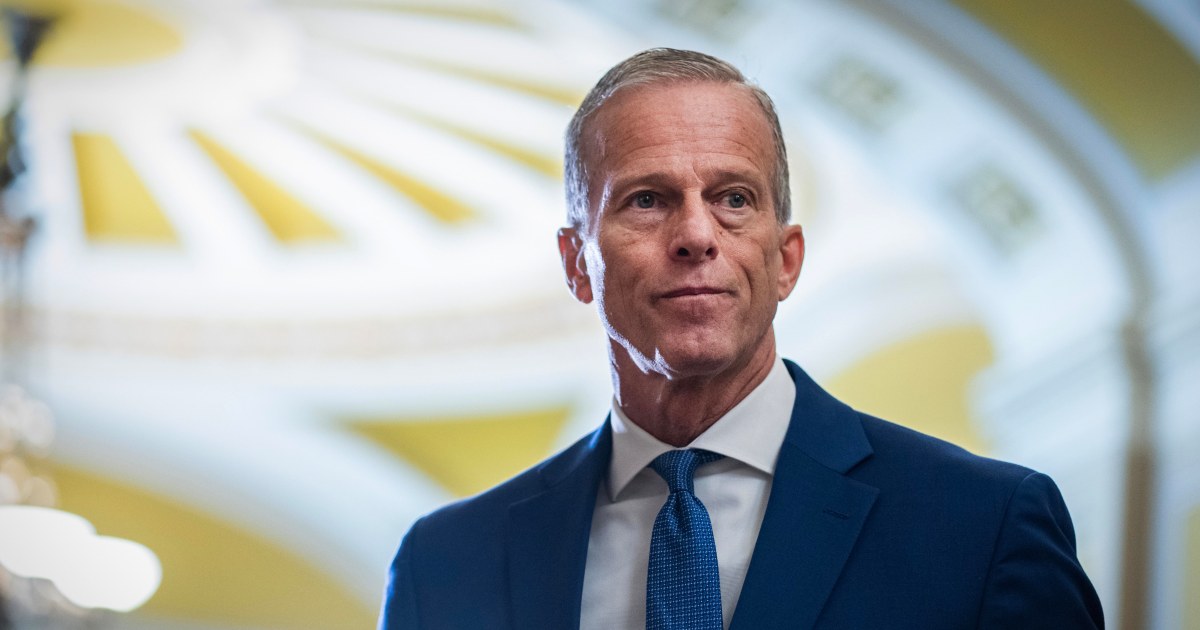
WASHINGTON — Republican leaders are moving closer to implementing a major change to Senate rules that would allow them to confirm scores of President Donald Trump’s nominees in batches, rather than vote on each one individually.
Republicans are making the change to speed up votes on Trump’s nominees after complaining that Democrats are slow-walking them en masse. Meanwhile, the Senate’s top Democrat warned them not to “go nuclear” in service of advancing Trump’s loyalists.
Senate Majority Leader John Thune, R-S.D., said he plans to begin the process Monday, although it is expected to continue into next week before the rule change becomes official.
Republicans plan to use the “nuclear option,” a process where the party in power can pierce standing order to set a new precedent, effectively changing the rules with a simple majority. The tool has previously been used by both parties to weaken the 60-vote filibuster rule for judges and to reduce debate time for nominees.
“It’s time to take steps to restore Senate precedent and codify in Senate rules what once was understood to be standard practice — and that is the Senate acting expeditiously on presidential nominations to allow a president to get his team into place,” Thune said Monday on the Senate floor. “And so this afternoon, I’ll be taking the necessary procedural steps to amend the rules.”
The plan would apply to nominees who are subject to two hours of debate under Senate rules, that is: executive branch nominees, sub-cabinet level picks and ambassadors. It would not apply to judicial nominations. And it would allow Senate leaders to vote on an unlimited number of nominees in one block, with a single up-or-down vote in the chamber to confirm or reject them all.
Thune has slammed Democrats for unprecedented levels of obstruction in refusing to allow speedy votes on any of Trump’s administrative picks. Democrats argue that Trump is trying to stock the government with an unprecedented level of unqualified lackeys, warranting historic levels of scrutiny.
“If Republicans go nuclear, the historically bad nominees we’ve seen so far under Donald Trump will get only worse,” Senate Minority Leader Chuck Schumer, D-N.Y., said on the floor Monday. “Sometimes it’s almost as if — the more corrupt, the better because then Donald Trump will totally control what they do. It’s as if he wants the Senate to confirm people willing to lie for him, to even cheat for him. He wants people who are willing to stand up for him without question.”
Schumer added that Democrats were nevertheless “working in good faith with Republicans on a nomination package” to advance quickly. “Senator Thune was very involved,” Schumer continued. “He seemed very willing to come up with an agreement and then at the last minute, of course, Donald Trump said, literally, to me, ‘Go to hell.’ And the talks fell apart.”
Republicans say their new rule for the Senate is loosely based on a proposal by Sens. Amy Klobuchar, D-Minn., Angus King, I-Maine, in 2023, which would have allowed lower-level nominees to be considered on the Senate floor in blocks of 10, instead of individually. Republicans have not secured Democratic buy-in for their current plan.
Republicans will allow their own senators to object to a nominee included in the block. And if that happens, they will either try to work out the hold with the senator or pull the nominee out of the block. That same courtesy will not be afforded to the minority, as Democrats practically have a “hold” on every Trump nominee.
Republicans recognize that the precedent they set can be used by a future Democratic majority and president, as Senate Majority Whip John Barrasso, R-Wyo, acknowledged.
“You always think about what’s going to happen when the shoe is on the other foot, and that is ultimately going to happen at some point,” Barrasso told reporters last week when asked if he worries Republicans will regret it. “But this is historic obstruction. We’re trying to get back to the way this has been previously.”
Source link


